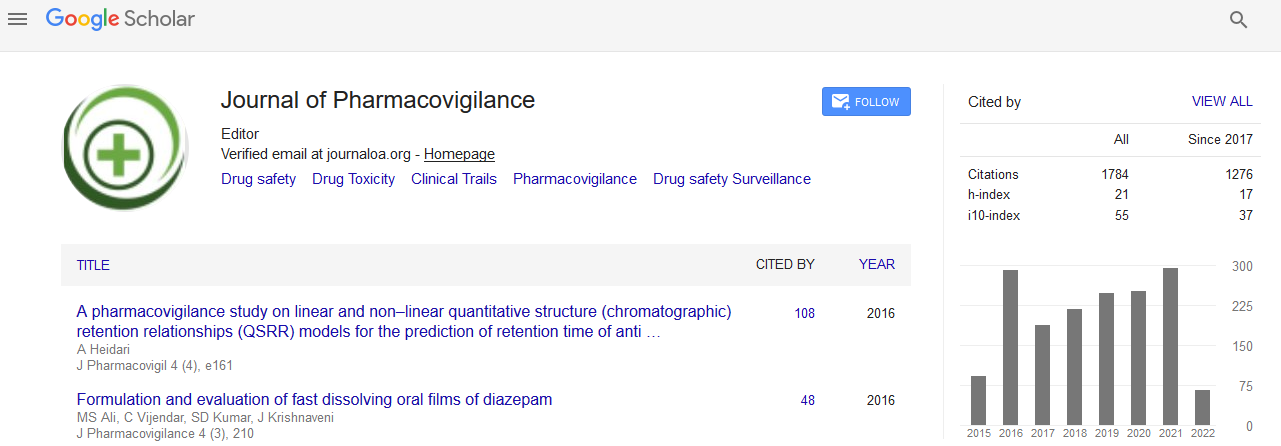Indexed In
- Open J Gate
- JournalTOCs
- The Global Impact Factor (GIF)
- RefSeek
- Hamdard University
- EBSCO A-Z
- OCLC- WorldCat
- Publons
- Euro Pub
- Google Scholar
Useful Links
Share This Page
Journal Flyer

Open Access Journals
- Agri and Aquaculture
- Biochemistry
- Bioinformatics & Systems Biology
- Business & Management
- Chemistry
- Clinical Sciences
- Engineering
- Food & Nutrition
- General Science
- Genetics & Molecular Biology
- Immunology & Microbiology
- Medical Sciences
- Neuroscience & Psychology
- Nursing & Health Care
- Pharmaceutical Sciences
Is the current analysis of MAHs of off-label use constructive?
9th International Conference and Exhibition on Pharmacovigilance & Drug Safety
July 17-18, 2017 Munich, Germany
Anika Staack
MEDICE, Germany
Keynote: J Pharmacovigil
Abstract:
Statement of the Problem: Off-label use is the intentional use of a drug outside the authorized product information. Within the European Union, a recent study revealed that a majority of published studies reporting levels of 20% or higher for the use of off-label medication and more than 55% when looking at the percentage of doctors prescribing off-label. Off-label use might be done due to unavailable authorized products for a specific age group (e.g. off label use in children) or therapeutic groups (e.g. anti-bacterial agents). In the latter, this has an impact on general public health in case of increase in resistance. Off-label use has to be collected by MAHs for further assessment and evaluation. Normally the MAH receives information about off-label use when additional adverse drug reactions happened or via medical enquiries by the treating physicians. The MAHs inform then the reporting physician about the off-label use. Normally, no further data are directly provided by the physician leading to an under-reporting of off-label use and therefore, a lack of appropriate analyzing possibilities and corrective action-taking. Methodology & Theoretical Orientation: In the European database of adverse drug reaction reports the total number of reported cases and the number of reported off-label use was analysed for seven antibiotics. The data include all reports up to March 2017. Based on feedback from physicians via interviews, nearly 50% prescribed antibiotics off-label. Conclusion & Significance: There is an under-reporting of off-label use in regards to what physicians are reporting on interviews and reporting as cases. This is leading to data of poor quality and evaluability. The analysis process of off-label use should therefore be adopted to reflect the current situation which might lead to a better use of knowledge and current treatment methods of physicians.
Biography :
Anika Staack studied Biology at the University of Marburg (Master degree). She started working as Clinical Research Associate for cancer studies for 1.5 years and switched then into the field of drug safety. For more than 14 years she is working in the area of drug safety/pharmacovigilance and people management. Main areas of research interest are the impact of change in the pharmacovigilance legislation and its influence on quality as well as training. Currently she is working as EU-QPPV for a pharmaceutical company. Further education includes certified business trainer and meditation therapist.
Email: anika.staack@gmail.com


